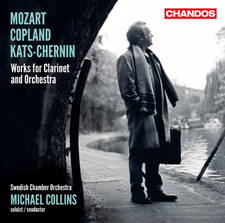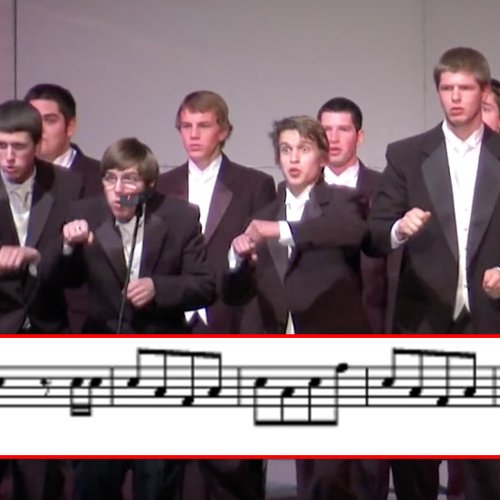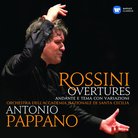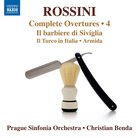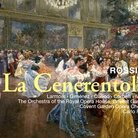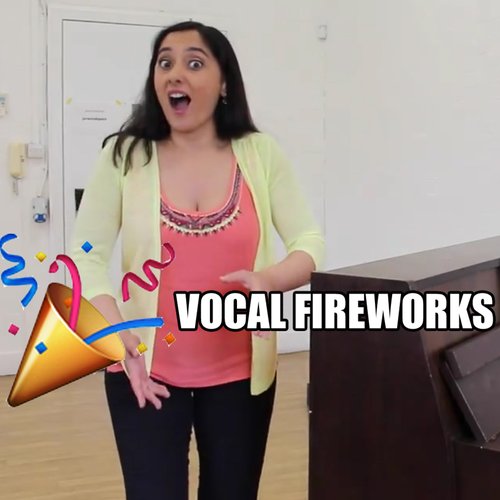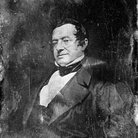Kyiv’s National Opera House defiantly reopens as war rages on in Ukraine
23 May 2022, 14:25 | Updated: 25 May 2022, 14:06
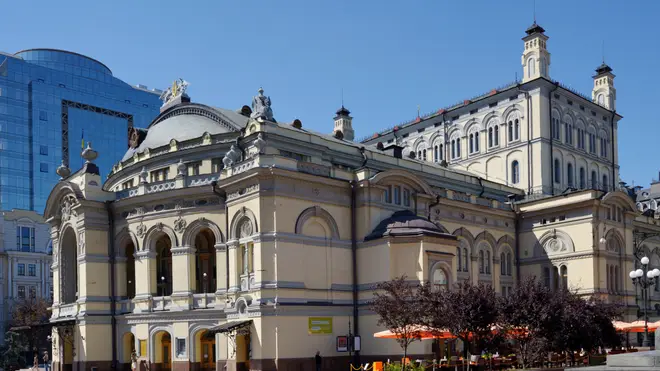
While war rages on in Ukraine, music and applause were heard for the first time since the start of the Russian invasion at the country’s national opera house.
Listen to this article
Loading audio...
This Saturday, the National Opera of Ukraine in Kyiv re-opened for the first time since the start of Russia’s invasion of Ukraine, almost four months ago.
The first performance back was of Italian composer Gioachino Rossini’s comic opera, The Barber of Seville, and the audience reportedly gave the two-act production a 10-minute standing ovation.
Saturday’s afternoon show was expectedly sold out, as although the theatre can usually hold 1,300 attendees, only 300 seats in the stalls were up for sale. This was due to concerns about needing to quickly evacuate the audience should an air raid siren sound, as the coat check – which doubles as a bomb shelter – can only hold 300 people.
Ukrainians from all walks of life came to this weekend’s re-opening, including those who had never seen opera before. One audience member, a soldier called Volodymyr, told the Guardian, “I can’t say opera is my usual entertainment, but it is an incredible feeling to hear this music and to be in a different world for a little while, before coming back to our reality”.
Read more: Ukrainian orchestra rushes inside as air raid siren disperses open-air concert in Lviv
Opening of National opera of Ukraine. So happy to be here and see so many people, including ambassadors of foreign states, who came back to Kyiv. In wartime music is relief and light. pic.twitter.com/PO2UAcES1d
— Tkachenko Oleksandr (@otkachenkoua) May 21, 2022
Some audience members took the opportunity to wear cocktail dresses and suits, which may not have come out of the cupboard since before the war began.
It wasn’t entirely easy to forget the ongoing war beyond the opera house doors, as part of the audience was made up of military personnel who were wearing their uniforms to the performance, should they be needed for action at any given moment.
Lt. Maksym Butkevych, an audience member who left his barracks for the day to attend the performance told the New York Times that the reopening of the opera house was “a symbol that Kyiv, which was surrounded – and surrounded by killing fields – has reopened its cultural institutions.
“It is a kind of promise that we will prevail. Life will go on, not death.”
Read more: Ukraine orchestra and chorus perform ‘Va, Pensiero’ outside opera house in powerful cry for peace
Kyiv’s Opera House is back up and running - great to see people laughing and smiling during the performance pic.twitter.com/R797ACPI5H
— Tom Soufi Burridge (@TSoufiBurridge) May 21, 2022
Although some members of the opera house are now abroad, and some are serving in the territorial defence forces, the National Opera were able to get together enough staff and artists to perform not only The Barber of Seville, but a diverse range of upcoming operas.
Singing the lead role of Rosalina in Saturday’s opening night performance of the Rossini opera, soprano Olha Fomichova struggled to hold back tears as she spoke to journalists at the show.
“I had the feeling this morning that I was coming to sing a premiere, even though I have been singing this role for years,” she admitted. “I feel like I’m coming out on to this stage, which I know so well, for the first time.
“When you take a Ukrainian flag on to the stage for the curtain call and you are met with a 10-minute standing ovation... I don’t have words to describe the feeling”.
Read more: Ukrainian soprano drapes herself in flag during powerful ‘Turandot’ curtain call at Met Opera

Opera singers perform to cheer up resistance in Odesa amid Russian invasion of Ukraine
With tickets remaining at 300 seats a performance, the opera’s next production is Natalka Poltavka, a three-act opera by Ukrainian composer Mykola Lysenko. The upcoming performance schedule, which will continue on weekend afternoons, also includes Pergolesi’s La Serva Padrona and Verdi’s Rigoletto.
Russian repertoire will not be performed at the Kyiv opera house, and Ukraine’s culture ministry is currently actively lobbying opera houses across the globe to remove Russian works from their upcoming programming.
The prominent debate on Russian music has already had a worldwide impact on orchestras and ballets, and in some cases, artists themselves have been banned from performing on stages or in competitions.
Ukraine’s minister for culture and information, Oleksandr Tkachenko, argues that the ask is a “symbolic” one, and at this time the world should be celebrating composers of other nationalities, such as “French, Italian, and certainly Ukrainian”.
